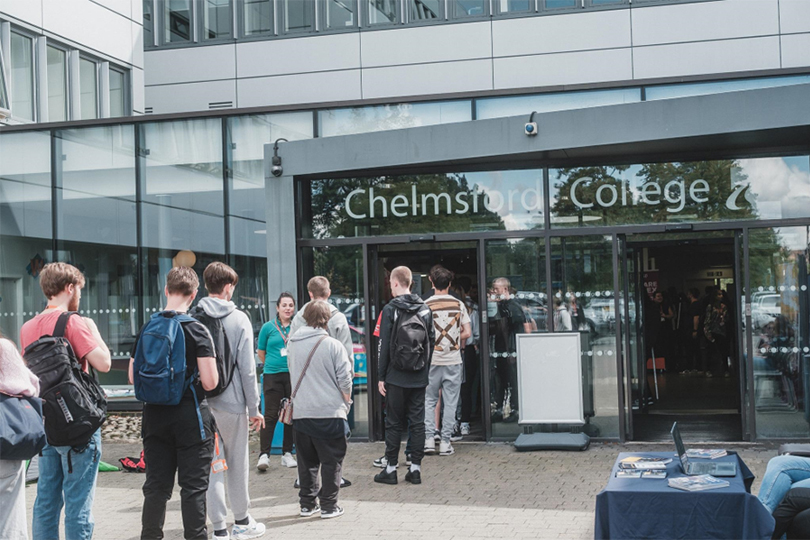Blog | What Are The Main Differences Between School & College?

Finishing Year 11 and moving on to college is an exciting milestone. It’s your first real step into a more adult learning environment, one that comes with new freedoms, responsibilities and experiences. But what exactly changes when making the move from school to college? Here’s what to expect so you can be prepared and confident from day one.
1. Navigating Your New Routine
College life feels very different from school. The atmosphere is more mature and independent; you’ll be treated more like an adult. While you’ll still move between classrooms, some colleges have multiple campuses, so you might need to travel between sites for specific lessons.
Another significant change is transport. Unlike school, there’s usually no school bus. You’ll need to plan how you’ll get to college, whether that’s walking, cycling, using public transport or driving. If you plan to drive, check in advance whether you need a parking permit or pass and make sure you’ve arranged parking before your first day. Planning will help you arrive on time and avoid unnecessary stress.
2. More Freedom, More Responsibility
College gives you more independence, but it also means taking more responsibility for yourself. There are fewer rules, and you’ll need to manage your own attendance, stay organised and ask for help if you need it.
It’s an excellent opportunity to start developing self-discipline and good habits that will help you later in life, whether you go on to university, work or an apprenticeship.
3. No Uniform (But Still Dress Accordingly)
One of the biggest perks of college is saying goodbye to the school uniform! You’re free to wear what you like, but you’re still expected to look appropriate and respectful.
Some courses may have specific dress requirements, for example, sportswear for fitness qualifications or safety gear for practical subjects. It’s all about balancing comfort, self-expression and professionalism.
4. A Different Timetable & Learning Style
Your college timetable will likely look very different from your school one. You may not have lessons every day, or might start later some mornings. You’ll also have free periods, which means more flexibility, but also more responsibility for how you use your time.
Use those gaps wisely: complete assignments, do independent study or prepare for upcoming lessons. This freedom can be great, but time management is key to staying on top of your work.
Lessons themselves can also feel different. You’ll usually study fewer subjects, focusing on the areas that interest you most. Teaching styles are often more discussion-based and independent, helping you think for yourself rather than just memorise information.
5. Meeting New People & Finding Your Place
College brings together students from many different schools and backgrounds, which means you’ll have the chance to make new friends and meet people who share your interests. Everyone’s starting fresh, so even if you feel nervous at first, remember that most others are in the same boat.
Getting involved in clubs, societies, or social events is a great way to settle in and make the most of college life.
6. Preparing for the Future
College isn’t just about learning subjects; it’s about learning life skills and preparing for life after education, too. You’ll develop key skills such as independence, time management, communication, and organisation. These are all things employers and universities value highly.
It’s your chance to explore your interests, figure out your goals, and start taking steps toward your future.
Final Thoughts
Transitioning from school to college can feel like a significant change, and it is! But it’s also an exciting opportunity to grow, learn and gain independence. With good time management, the right attitude and a bit of preparation, you’ll settle in quickly and make the most of this new chapter.
Chelmsford College, Moulsham Street, Chelmsford, CM2 0JQ
Tel: 01245 265611